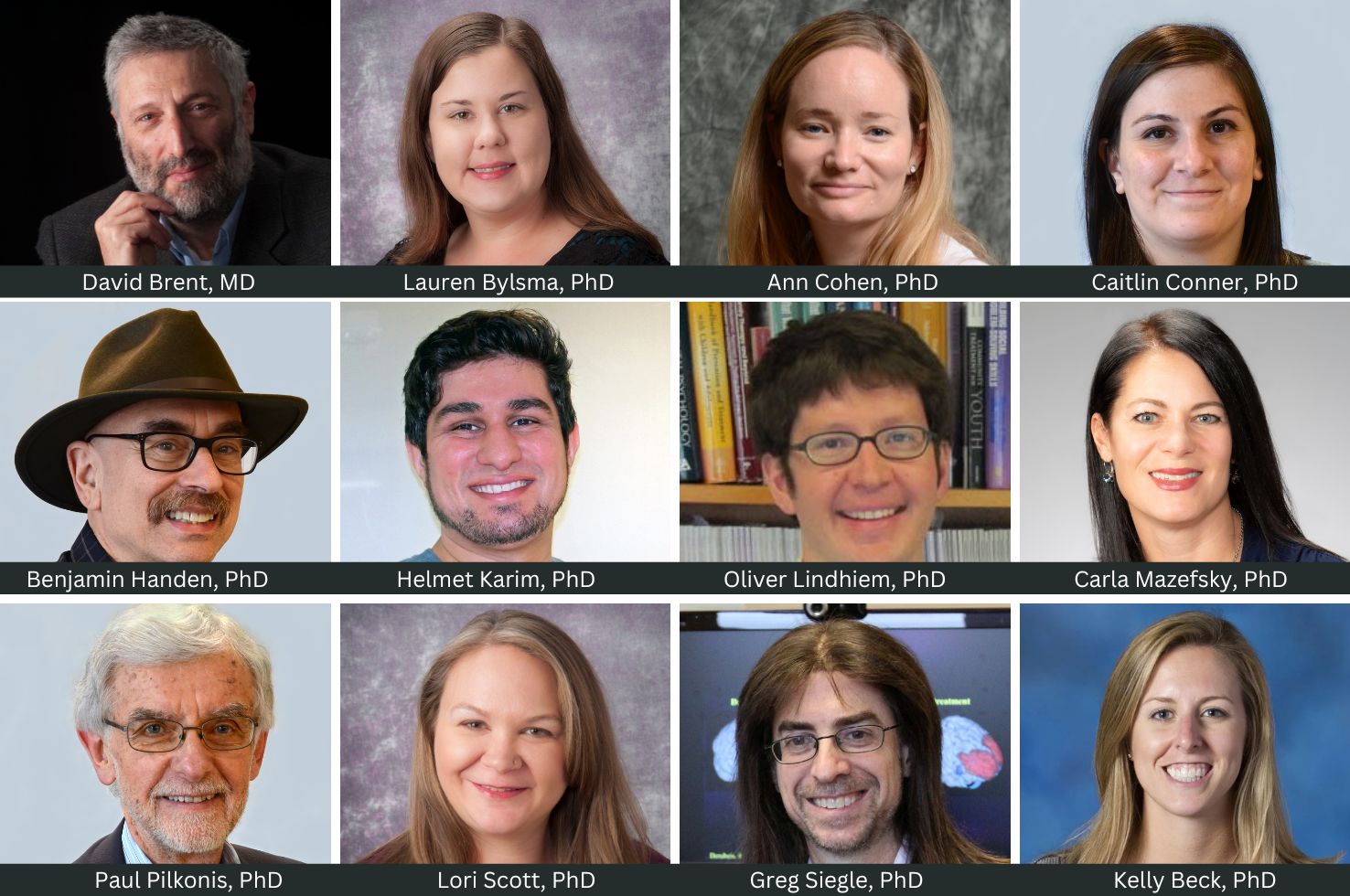Pitt Psychiatry Awarded $11.5M National Institute of Mental Health Center Grant Focused on Investigating Emotional and Mental Health in Autistic Adults

The National Institute of Mental Health has awarded the University of Pittsburgh Department of Psychiatry an Autism Center of Excellence (P50) grant to fund “Mental Health in Autistic Adults: An RDoC Approach.” The University of Pittsburgh Autism Center of Excellence (ACE) will be led by Carla Mazefsky, PhD (Professor of Psychiatry, Psychology, and Clinical and Translational Science).
The University of Pittsburgh ACE will fill a void in research on autistic adults and their mental health needs. Dr. Mazefsky and her colleagues will partner with the autistic community to establish rigorous methods and measures to support future research and clinical practice related to adult mental health, with the ultimate goal of improved safety and quality of life for autistic adults. The ACE will consider mental health broadly, with a special emphasis on suicide, self-injury, and emotion dysregulation.
The ACE will accelerate research progress by having a core group of 300 participants (200 autistic, 100 non-autistic) complete a set of inter-related projects that all use different methods. ACE investigators will prioritize including adults with a range of experiences, including at least 1/3 with suicidal thoughts or behaviors in the past four months. Effort will be made to include participants who vary in degree of support needs (i.e., from reliance on others for daily activities to fully independent), trauma histories, age of autism diagnosis, and racial, ethnic, and LGBTQIA+ identities.
The ACE team includes faculty from the Department of Psychiatry and multiple additional departments across the University of Pittsburgh—including autism researchers, experts in other areas who are new to autism research, and several external collaborators—many of whom are autistic.
ACE includes three cores and three projects:
• Dr. Mazefsky will lead the Administrative Core. Dr. Mazefsky is an internationally recognized expert in emotion regulation in autism spectrum disorder. Administrative Core co-investigators include: David Brent, MD (Distinguished Professor of Psychiatry, Pediatrics, Epidemiology, and Clinical and Translational Science, and Endowed Chair in Suicide Studies); Satish Iyengar, PhD (Professor of Statistics); and Helmet Karim, PhD (Assistant Professor of Psychiatry and Bioengineering). The Administrative Core will oversee the center progress and direction in partnership an external board (co-led by Xenia Borue, MD, PhD, Full Spectrum Psychiatry, and Susan White, PhD, Doddridge Saxon Chairholder and Professor of Psychology); and Center Advisor Morénike Giwa Onaiwu, PhD (Advocates without Borders), and will support innovative analyses that integrate data from the entire ACE.
• Project 1 – Suicidality in Autistic Adults: Self-Report Development and Trajectories will develop the Autism Suicidality Inventory (ASI), the first dimensional self-report questionnaire of suicidality developed for autism spectrum disorder. The ASI and other measures will be repeated over time to produce the first longitudinal characterization of suicidality in autistic adults, as well as other outcomes from self-injury to life satisfaction. Project 1 will be led by Dr. Mazefsky and Caitlin Conner, PhD (Research Assistant Professor of Psychiatry), with co-investigators Paul Pilkonis, PhD (Professor of Psychiatry and Psychology and Clinical and Translational Science), Dr. Brent, Dr. Karim, and Lan Yu, PhD (Associate Professor of Medicine, Psychiatry, and Clinical and Translational Science).
• Project 2 – Daily Life Emotion Dysregulation in Autistic Adults with Ambulatory Psychophysiology will be led by Lori Scott, PhD (Assistant Professor of Psychiatry), and Lauren Bylsma, PhD (Assistant Professor of Psychiatry and Psychology), with co-investigators Dr. Conner and Aidan Wright, PhD (Professor of Psychology). Project 2 will use an innovative design of smartphone assessments across 14 days, occurring randomly throughout the day and also when triggered by changes in physiological arousal. Project 2 will characterize near-term risk processes for suicidal ideation, self-injury, and impulsive aggression in a time-sensitive manner to allow for future interventions prior to escalation of emotion dysregulation and harmful outcomes.
• Greg Siegle, PhD (Professor of Psychiatry and Psychology and Associate Professor of Clinical and Translational Science) will lead Project 3 – Neuroimaging of Emotional Reactivity in Autistic Adults, with co-investigators Dr. Mazefsky, Dr. Karim, and Yukari Takarae, PhD (Assistant Research Professor, University of California, San Diego). Project 3 will include neuroimaging during social, emotional, preferred interest, and sensory-based tasks to understand how neural reactivity corresponds to subsequent physiological reactivity and self-reported emotion. Project 3 will characterize specific neural circuits and tests a possible causal pathway for physiology and behavior in daily life (Project 2) and in suicidality over time (Project 1).
• Benjamin Handen, PhD (Professor of Psychiatry and Pediatrics), Dr. Scott, and Dr. Conner will lead the Clinical Core, which provides data to all of the projects to characterize the sample, including novel measures (e.g., a biomarker of aging based on structural brain images). Clinical Core leads will collaborate with co-investigators Oliver Lindhiem, PhD (Associate Professor of Psychiatry and Pediatrics), and Dr. Yu to apply a novel method of determining degree of certainty regarding psychiatric diagnoses.
• Ann Cohen, PhD (Associate Professor of Psychiatry), and Kelly Beck, PhD, LPC, CRC (Assistant Professor of Psychiatry), will lead the Dissemination and Partnership Core, with co-investigators Valire Copeland, PhD (Professor of Social Work), Judy Chang, MD, MPH (Associate Professor of Obstetrics, Gynecology & Reproductive Sciences, and Internal Medicine), and Jamie Kulzer, PhD, CRC, LPC (Associate Professor of Rehabilitation Sciences). The Dissemination and Partnership Core focuses on community engagement and authentic partnership with autistic adults and their allies, dissemination, and training activities, including developing a continuing education series for healthcare professionals in the community.
“I am most excited about the synergy that will be created by the different perspectives that the ACE brings together and the shared assessments across projects,” said Dr. Mazefsky. “We will have the chance to do things like connect a biological causal mechanism to lived experiences and longitudinal outcomes—this may uncover connections not previously considered and will hopefully open new avenues for intervention. ”
